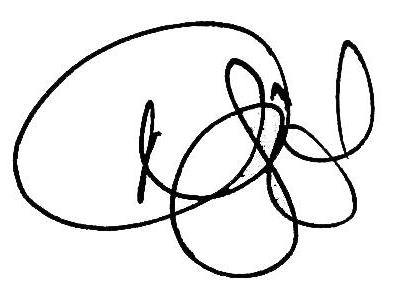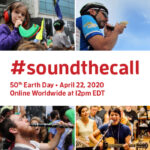Friday, April 3, 2020 | 9th Nissan 5780
Dear All,
Seder is one night – in Israel.
In chutz la’aretz – ie, outside of Israel – it’s two nights, so next Thursday night is the second night of seder.
And for most of the Jewish world, as we know, these two nights are indeed going to be different nights, as we figure out how to do seders by Zoom, or in small (very small) groups, and so on. It will be weird. And there will be lots of riffs on plagues, lots of haggadah supplements to download, and so on.
Hazon’s gift to you is a frame for the second night, for Thursday night.
Normally, at the end of the evening – with kids running wild, the table in chaos, the meal just finishing, various people conked out because it is so late or they’ve eaten so much or drank so much – right then, we count the omer. No wonder we don’t properly pay attention to it.
So our gift to you this year is – don’t bury it. Make it a conceptual focus of your second night seder.
The first night – celebrate that you’re alive.
That your family made it to America or Italy or England or wherever you are.
That – hopefully – you’ve survived this plague, so far.
That our doctors and health care workers are acting courageously, under impossible conditions; and that our legislators, for once, came together and quickly passed important legislation.
All this is freedom from. It’s freedom from want and oppression; from the absences our ancestors lived with their whole lives, just a century or two ago – without dentists or antibiotics or health systems, perhaps without democracy, without fast roads or clean water or… Zoom. Indeed.
So Wednesday night, as we celebrate the seder, this is an important part.
But Thursday night is different. It’s a riff on the seder. Much we did the night before, we may or may not do again, or in the same way. But the second night we count the omer.
Here’s a quick frame for this – and then some questions for your table… or your Zoom.
The frame
An “omer” is an agricultural measure. The barley harvest and the wheat harvest were growing, from Pesach to Shavuot, and we were an agrarian people – even, indeed, an indigenous people. So we counted up the days, one by one, until the harvest. That’s why Shavuot (and the word means “weeks,” as in the seven weeks from Pesach to Shavuot) is also chag ha’asif, the festival of gathering (the harvest.)
But then there was a second thing. Because Shavuot is zman matan torateinu, the time of the giving of the Torah. So the rabbis – and certainly the more mystical amongst them – gave a second overlay. This was the sefirot. Seven aspects of “the divine”; or, if you like, seven aspects of human behavior or character – kindness or openness; discipline, boundaries; balance and beauty, and so on.
(Click here for an explanation of the sefirot and here for the website of R Simon Jacobson, who has a beautiful book and kavanah and mailing list for counting the sefirot.)
And the count from Pesach to Shavuot – counting the omer, starting on Thursday night – is about moving from freedom from to freedom to. We’ve left Egypt. We’ve left slavery. Now we’re in the wilderness. No rules, no Torah, radical freedom. We learn that this is hard – we don’t like it – we miss, indeed, Egypt (a kind of Stockholm Syndrome on the part of the entire Jewish people.)
We learn the hard way that we can’t live with radical freedom, we actually need boundaries and limitation, to create a good society, to live a good life. And hence Shavuot, and the giving of the Torah.
What this means for Thursday night.
A few ideas:
- Make it thematically central to your evening. Introduce it at the start.
Explain you’ll end with counting the omer – but that you’ll begin, for instance, by having everyone go around and share one freedom that they have, that they shouldn’t take for granted (or that one of their ancestors may not have been able to enjoy); and then, what’s one freedom that you personally have, or the world has, that you think is doing us some damage?
And this alone – and in this moment – may turn into a rich opening for your seder and a rich conversation during the evening; - As you go through the seder – think about the different riffs on freedom that come up, the tension between freedom and order, the way that Pesach creativity itself arises from the structure, from the order of the seder;
- And then – after the meal – as you count the omer together, I invite you to do two things:
- First – commit to try to count every day. If you remember every day, and count with a bracha, a blessing – super. But if you forget – count anyway. Count the days to Shavuot. Count the days up through this plague, through diminutions in our freedom of movement, and back – hopefully – towards the light. This year will be a good year to count;
- And second, if you are minded to, commit to journaling each day about freedom from and freedom to. What you wish to be free from. What you wish to be free to do, or not do. What our world needs us collectively to be free to do more of or less of.
At its heart – make this period in our lives truly count.
And figure out for yourself, and whomever you’re sedering with, what you want it to mean; how, come Shavuot, you’ll be a better person, and help the world be a better world.
If you make these ideas a central theme of your second seder, you will not only bring the evening to life in new ways; you’ll not only engender a rich conversation; but you may also, as I believe the tradition fully intends, have Pesach not be an ending, or a night – or 7 or 8 nights – unto itself; but rather the beginnings of a journey. And this year – this year – that journey will be unique and important.
Two last things.
There are two days that punctuate this year’s counting of the omer that I want to remind you of.
April 22nd – the 50th anniversary of Earth Day. Our campaign #soundthecall is gathering steam.
Sound your shofar, if you have one, at noon EDT that day – and post it on social media.
Click here to find more about what this stands for and why it is so important. And, if nothing else, please share this with your rabbi, with friends, with anyone who has a shofar, or anyone who has a drum or a trumpet or who simply wants to stand up in public that day and #soundthecall – a call for change, a call to learn our lessons, a call for healthcare and for environmental sustainability, a call not to bequeath our craziness to the generations that are to come. (And: daytime on April 22nd is the 13th day of the omer – yesod she’b’gevurah. The week is about discipline, and boundaries. And yesod is about fundamentals, in all senses. So this is, as chance would have it, a day in which we are indeed invited to think about the boundaries we need in this world, and how we get back to the fundamentals of living well and safely and equitably, here on this small busy planet.
Lag b’Omer, the evening of May 11th and the day of May 12th. It’s the 33rd day of the omer, and a minor holiday. In Israel a time of bonfires and barbecues. Everyone forgets what it’s about. But it’s about a plague. And the plague started, finally, to cease, and people stopped dying – and so we celebrated, and for twenty centuries we have celebrated every year. Well – this year this will take on new meaning. If the epidemiologists are right, by then – PG – the tide will have started to turn. May it be so.
These two dates – talk about them at the seder.
Put them on your calendar – literally – and decide how you’ll choose to register them; you might make that part of your meal time conversation, ahead of the count itself.
Understand that when we start counting, on Thursday night, we are beginning a count that leads to Shavuot and is punctuated by these two dates – the 50th anniversary of Earth Day, and Lag b’Omer, in the year of the plague.
And so – let’s make it count…
Shabbat shalom, chag sameach,

Nigel
[hr]
#soundthecall this Earth Day
April 22nd is the 50th anniversary of Earth Day, a time of celebration and a call to action. Let’s #soundthecall online worldwide: share a video of yourself on social media sounding a shofar or other instrument to stand up for the well being of planet Earth. Then this Earth Day, though we are physically distant, we will join virtually at 12pm ET to simultaneously blow shofar, sing songs, and raise our voices. RSVP for April 22nd and learn more at hazon.org/soundthecall.
And, be sure to join us live on Zoom on Monday, April 6th at 12pm ET for the official campaign launch. Learn more.
